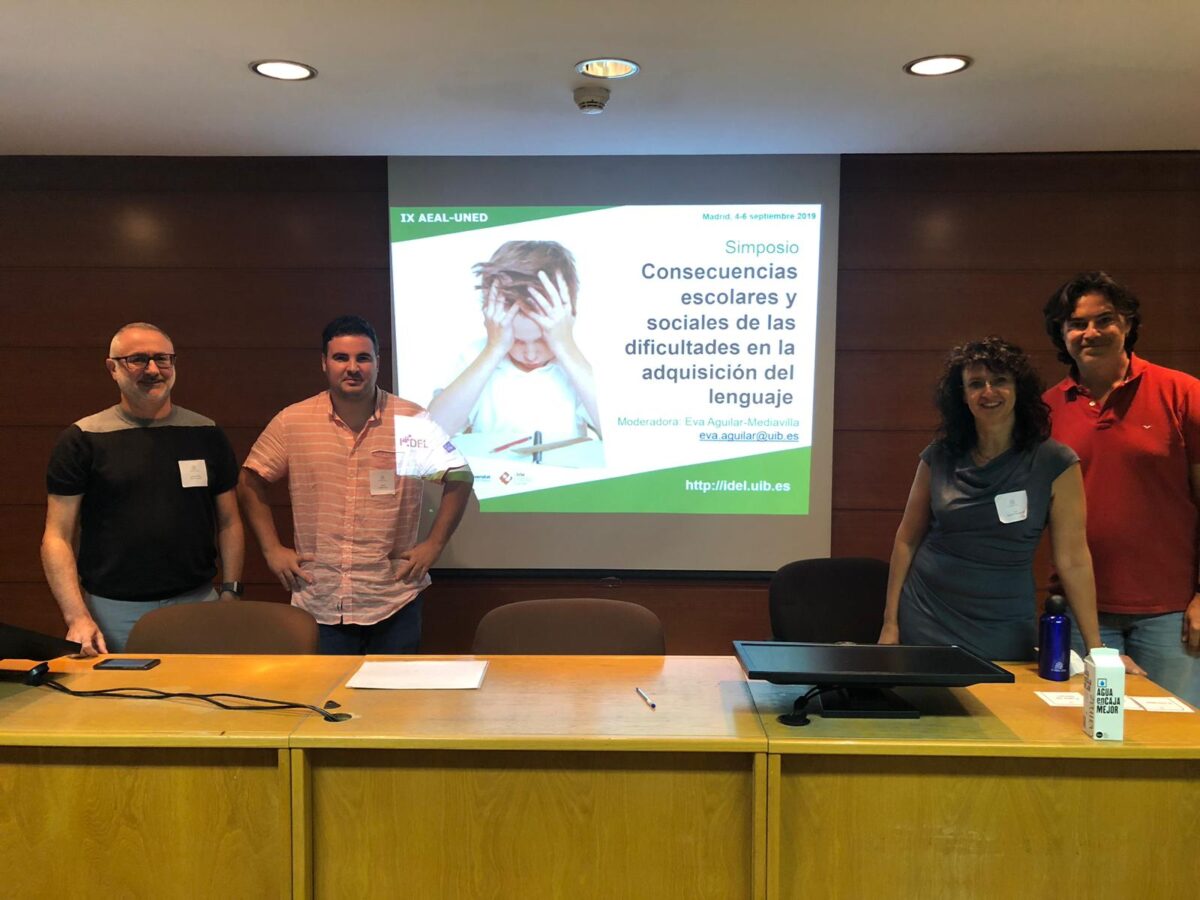This congress, which was held in Madrid from the 4th to the 6th of September 2019, has the aim of spreading the last advances in research related to language acquisition difficulties in children. The research group of the University of the Balearic Islands (UIB) brought to this event the results of their studies on Developmental Language Disorder (DLD) in bilingual catalan-spanish speaking population. DLD implies a stark difficulty along the development of oral language, which specially affects the morphosyntactic component, in absence of any other deficit or pathology that may explain this difficulty. Nonetheless, this primary language disorder can affect other developmental areas.
Following this line of thought, the members of the I+DEL group presented the results of their studies which look into the consequences that DLD might have on the cognitive, social and emotional development of the children that suffer from it. Firstly, Josep Pérez explained how it has been seen that children with DLD have greater difficulties in solving Theory of Mind related tasks, specially when linguistic cues are needed. It was hypothesized that such difficulties might be at the base of the problems that these children usually have to maintain social relationships.
Secondly, Mario Valera exposed the results of a study in which children with DLD were compared with control ones through the analysis of a questionnaire that measures behavioural adaptation problems and clinical symptomatology. This questionnaire was administered to the children themselves and to their scholar tutors. While no differences were found between the two groups in their puntuations on the self-report measure, these were present in the questionnaires answered by their tutors. More specifically, it seems that children with DLD show a greater level of isolation and shyness, which might cause that they go unnoticed in the classroom. Also, the seem to have more problems with attention and learning, and less abilities in the social area, of leadership, adaptability and of study. This is worsened by the fact that they do not seem to be aware of their deficits, which makes them more exposed to possible situations of bullying.
Following Mario Valera, Daniel Adrover shared the results, that confirm previous studies in other countries, which show that children with DLD have a greater risk of suffering bullying. It was discussed during his exposition the path that research should follow in order to evaluate the mediators of the apparition, maintenance and repercussions of bullying in this particularly vulnerable population, so that it can be prevented.
To conclude, Eva Aguilar exposed a study which evidences that children with DLD show more academic difficulties along primary education, being among them those with more problems in the comprehension of the complex morphosyntactic components and in lecture decodification the ones that showed greater risk of academic failure.


